It’s likely that if you are a baseball fan, you’ve heard the name Roberto Clemente.
In fact, you’ve likely heard the name even if you aren’t a baseball fan. There are, after all, only 33 baseball players with 3000 or more hits in history, and only one with that exact number: the late Puerto Rican Roberto Clemente. And yet, despite being a 15-time all-star, 12-time Gold Glove winner, and 2-time World Series winner, most of what is known about Clemente’s life and career can be summed up in two facts: he died young, and there’s an award named after him. That’s about it.
The award isn’t even baseball-related, or at least it has nothing to do with what a player does on the field. Instead, in honor of Clemente’s humanitarian work, The Roberto Clemente Award is given annually to the Major League Baseball player who “best represents the game of Baseball through extraordinary character, community involvement, philanthropy and positive contributions, both on and off the field.”
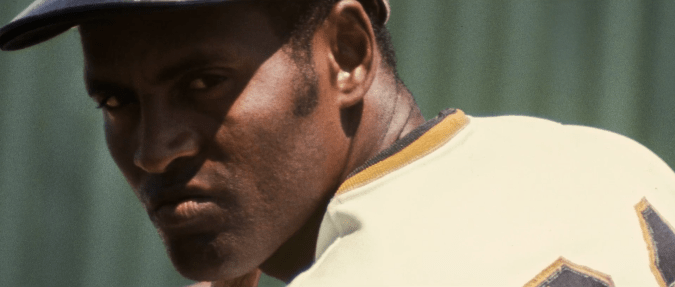
Why? Because Clemente’s off-the-field humanitarian work almost overshadowed his on-the-field prowess, and became part of his legend when he perished at 38 after the flight he was on, en route to deliver emergency relief goods to the survivors of a massive earthquake in Nicaragua, crashed.

These are all facts. Easily verifiable facts.
David M. Altrogge’s new documentary Clemente attempts to look behind the fact and into the legend. With former baseball players like Yadier Molina, who shares that he first saw Clemente as a photo next to Jesus Christ, celebrities like Michael Keaton, who always admired him, and Clemente’s sons telling stories about Clemente’s love for their mother Vera, all interspersed with archival footage and even animated sequences. Clemente isn’t about the numbers or even about the man, but about his legacy.
But legacy is so hard to quantify. Others have tried before. There’s ESPN’s “The Clemente Effect,” and an “American Experience” film on Clemente, and that’s pretty much it when it comes to documentaries. There are also two fictional movies, Baseball’s Last Hero: 21 Clemente Stories, a biographical sports film, and Chasing 3000 (2010), a movie about two brothers’ journey to see Roberto Clemente’s 3000th hit.
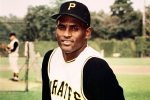
None of those come close to giving us the full story of Roberto Clemente, much less celebrating him.
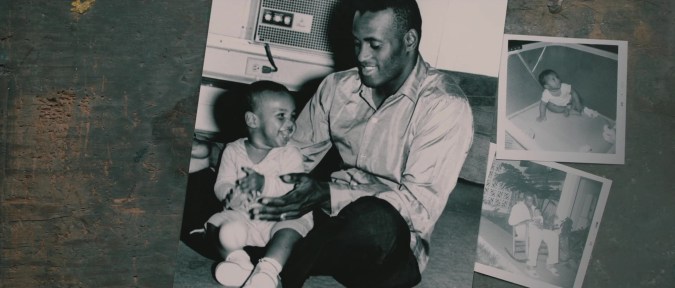
“Baseball was the vehicle to get my dad’s message across,” Luis Clemente previously told Remezcla. “He was not just a good ball player. He had to excel in what he did to get listened to. He was carrying a message and a voice for those who didn’t have a voice back then. He knew what he represented. He knew there was a calling for him.”
That sounds more like a legacy. And there are the little nuggets to back it up, like the fact that Clemente once hit a bone-shattering liner back at Bob Gibson on purpose after Gibson told him to go back to where he came from. But a look back at Clemente’s history gives us more. Like the fact that, as a Black Puerto Rican, Clemente had to hit back constantly, not just against pitches, but against racist portrayals in the media. He played more games in Pirates than anyone in Pirates history from 1955 to 1972, and yet he was repeatedly accused of being lazy or faking injuries.
“Mickey Mantle is God,” Clemente was quoted as saying in the book Clemente: The True Legacy of an Undying Hero, “but if a Latin or Black is sick, they say it is in his head.”
And that was just the tip of the iceberg.
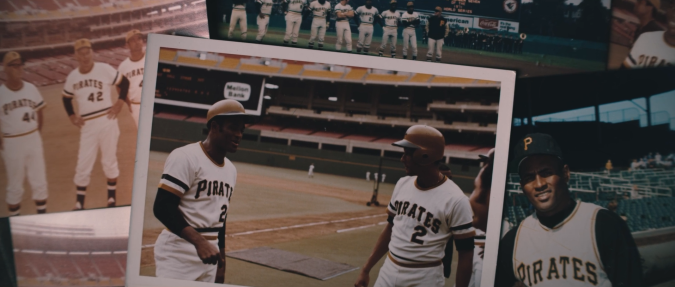
Clemente was frequently called Bob or Bobby, instead of Roberto–with baseball card companies and other merchandisers doing the same with merchandise about him. The excuse? His name was too hard to pronounce. His accent was frequently mocked, to the point his quotes were written out in broken English. And, despite the fact that he was arguably the best player on the Pirates’ 1960 World Series champions (.314 average, 16 homers, and 94 RBIs), he placed only eighth in the MVP vote. Instead, the award was given to his teammate Dick Groat.
These are all, once again, facts of Clemente’s life. But facts make up a story. Facts inform a legend. The one the documentary Clemente, and others before him, have tried to portray and have, somehow, despite their best attempts, still never even come close to. Because that’s how big Roberto Clemente was. That’s how much he meant.
Clemente wasn’t just a victim, he did things. He wanted to represent not just Black people, but Latinos. “Remember who paved the way for you,” he used to say, as he paid tribute to Puerto Rican pioneers in MLB like Hiram Bithorn and Luis Olmo. His wife Vera once said that he talked “a lot about how being a black Latin coming into baseball meant you had two strikes against you. He wanted the Latino players to get their fair share of the money. He wanted them to be managers … to get respect.”
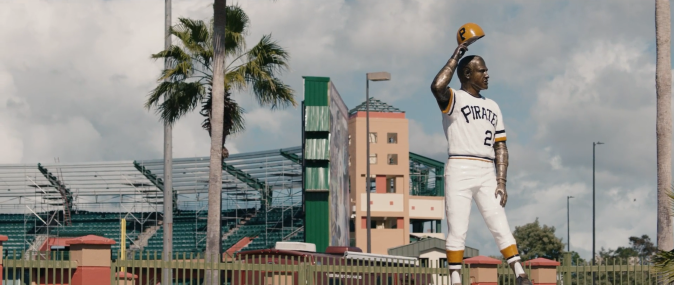
Roberto Clemente’s activism, which extended way beyond social justice, is perhaps what he’s most remembered for. “If you have a chance to help others and fail to do so, you are wasting your time on this earth,” he once said. And he put in practice what he preached on the field, helping stage a walkout after MLK Jr’s death, and off-the field, sponsoring charities to distribute food, medical supplies and baseball equipment—particularly for children.
All of that was cut short by his accident, but his legacy endures. Or, at least, it should. The numbers are the numbers. The game remains the game. But who Roberto Clemente was, what he meant to so many people, in baseball and beyond, has not been replicated—and has also never really been truly celebrated. The documentary Clemente is, perhaps, the beginning of that. But it’s not, and it should not be the defining story about a man who gave so much and who we’ve celebrated so little.
If you know baseball, you probably know Roberto Clemente. But even if you do, it’s perhaps time to stop and considering: do you know everything you need to?
Learn more about the Clemente documentary here.
In the Zone with Lissete Lanuza Sáenz is where sports analysis meets cultural insight. I bring a unique perspective to the world of sports, blending passion with informed commentary.
Expect montly insightful analysis, exclusive interviews, and a celebration of the diverse voices shaping the sporting landscape.
